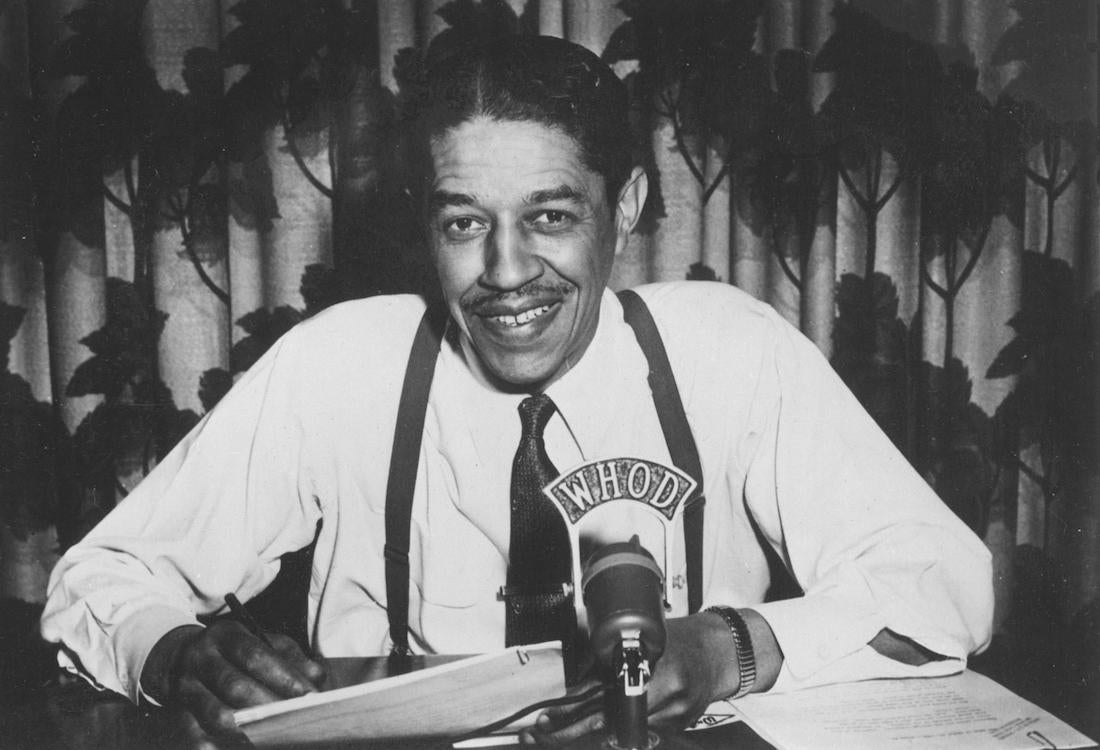
The ABC News journalist strides onto the United Nations Plaza in New York and, in his sonorous voice, details the escalating U.S. missile crisis with the Soviet Union. It is Oct. 28, 1962, and the nuclear weapons standoff has America — and the world — on edge.
It is a tense moment in history, one that overshadows the other history being made that day. It is the story of pioneering broadcaster Mal Goode, who had just become the first African American to report on national television, shattering a racial barrier and creating a pathway for thousands of Black journalists to follow.
“Mal Goode Reporting: The Life and Work of a Black Broadcast Trailblazer,” by Pitt Teaching Professor and Assistant Dean Liann Tsoukas, and her colleague Professor Rob Ruck uses archives, family interviews, corporate memos and more to chronicle Goode’s personal story and, with it, the story of a changing America.
Almost 30 years after Goode’s breakthrough during the Cuban Missile Crisis, Ruck, a historian of sports, was working on a documentary about baseball in the Negro Leagues when he met the retired journalist.
Goode’s roots in Homestead and as a Pittsburgh radio announcer meant he was closely connected to many Black ballplayers, including those who integrated the sport, such as Jackie Robinson and Roberto Clemente. In fact, it was Robinson, leveraging his own influence, who got Goode an audition with ABC News.
[Learn more about Goode and the book at NPR]
In listening to Goode (A&S ’32) tell of his beginnings in the rural valleys of Virginia and his rise to the heights of corporate broadcasting, it was soon apparent, says Ruck, that “his story was about much more than baseball.” Years after Goode’s death in September 1995, at the suggestion of retired Pitt history professor Richard Smethurst, Goode’s family approached Ruck to write a biography and help bring that story to a new generation.
Tsoukas joined him, using her expertise in social justice and Black American narratives to do just that, to showcase Goode’s “pathbreaking presence ... and reveal American histories yet to be told.”
Goode was ambitious from an early age. He did well at Homestead High School, came to Pitt in 1927, which he paid for by working nights in the steel mills, and soon joined the Black Greek-letter fraternity Alpha Phi Alpha.
He became a journalist for the Pittsburgh Courier and local radio, and because he used his voice to challenge segregation and discrimination, he was known to some as “Mouth Almighty.”
In the summer of 1962, Goode got the call to join ABC News.
Overcome with emotion, Goode told the ABC executives, “I am the grandson of slaves. I never thought I’d see this day.”



